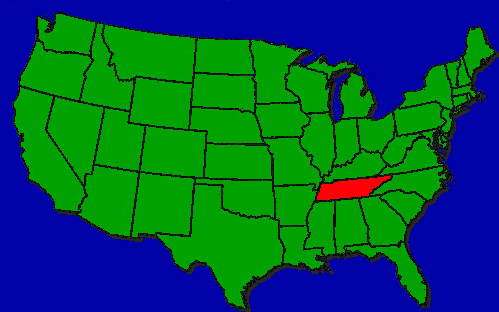
Circle the area on this map

D. Nashville is the capital and largest city, followed by Memphis, Knoxville and Chattanooga. Republicans failed by one vote to expel Rep. Gloria Johnson, D-Knoxville who is White. She had joined Black representatives Justin Jones, D-Nashville, and Justin Pearson, D-Memphis, in the protest. The two men’s expulsions left about 140,000 voters without any representation in the Tennessee House.
A. In Alabama, there are 21.5 firearm deaths for every 100,000 people. Only Alaska has a higher rate with 23 firearm deaths per 100,000. Tennessee has 17 firearm deaths per 100,000. Out of the 10 states with the highest gun death rates, seven do not require a permit to carry a concealed weapon.
B. Kentucky and Missouri remained part of the United States during the Civil War, although some of their citizens actively supported the Confederacy.
C. Jim Crow laws were passed in the 19th and 20th centuries across the Southern United States to segregate the races and restrict voting by African-Americans. “Jim Crow" was pejorative term for a Black person. Apartheid laws were used for the same purpose in South Africa, and the Nuremberg laws were used against Jews in Nazi Germany. Eugenics laws were used to forcibly sterilize disabled and “undesirable” people.